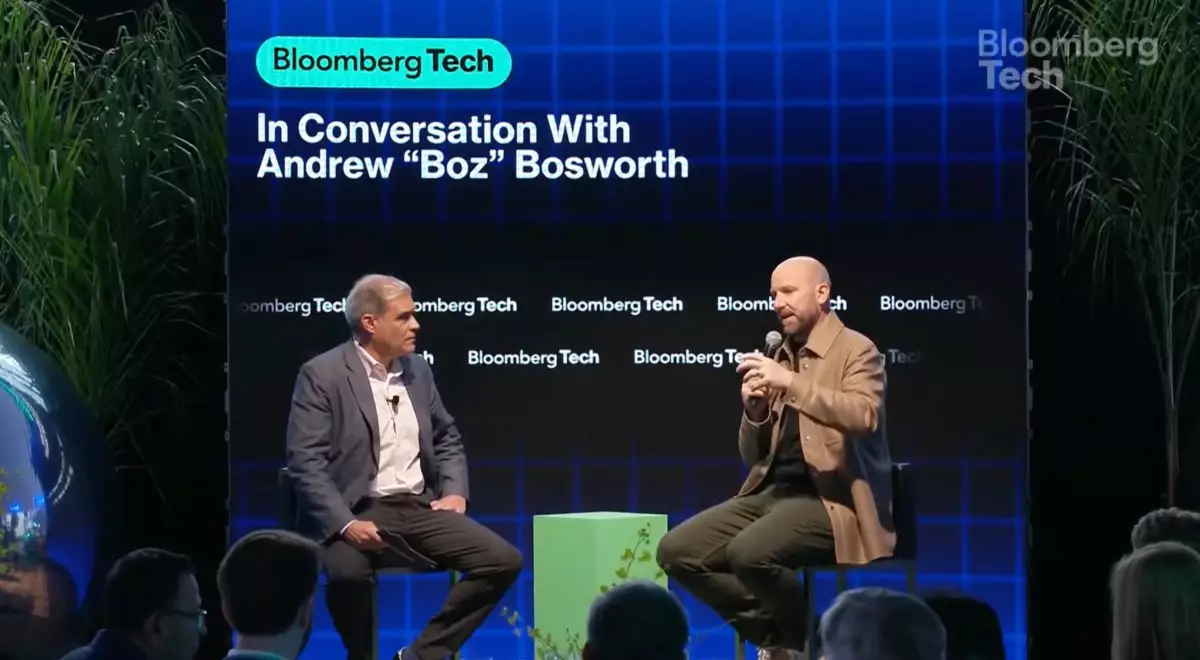In an era dominated by technological innovation, Andrew “Boz” Bosworth, the Chief Technology Officer of Meta, stands at the forefront of a pivotal transformation. Having been one of Meta’s original engineers, Boz carries the weight of both legacy and future promise. In a revealing memo, he outlined the critical significance of 2025 for Reality Labs, Meta’s augmented reality (AR) and virtual reality (VR) division. He places this year as a potential turning point—either a launchpad to greatness or a mere historical footnote marked by the “legendary misadventure” of the metaverse.
This sentiment was emphasized during a recent interview with Bloomberg Technology, where Boz suggested that 2023 could serve as a foundation that determines the trajectory of Meta’s future endeavors. “We’ll judge at the end of the decade,” he indicated, yet there’s an underlying optimism that is palpable. The arrival of Meta’s Ray-Ban AI glasses signals that a shift might already be in motion, sparking interest not only among consumers but also competitors in the tech landscape.
The Launch and Market Response
Since their launch in October 2023, Meta’s Ray-Ban AI glasses have made waves, selling over two million units by February. This figure is significant—not only does it showcase consumer interest, but it also reflects a successful penetration into a market long dominated by traditional eyewear. Boz highlighted this achievement, noting that these smart glasses have outsold conventional Ray-Bans, indicating a successful melding of fashion and technology.
Moreover, the competitive terrain is heating up, as major players like Google and Apple are stepping into the fray. Google has recently partnered with brands like Gentle Monster and Warby Parker to release their own smart glasses, while Apple is gearing up for a 2026 launch. The intense rivalry suggests that Meta’s initial success with Ray-Ban AI glasses may be just the beginning, serving as an invitation for other companies to invest significantly in AR technologies.
Understanding Competition in a Complex Market
Despite these promising indicators, Boz is quick to remind us that competition is meaningless without market adoption. “The market is actually, especially when it comes to hardware, a trailing indicator,” he stated, shedding light on a critical aspect of the technology sector that often gets overlooked. In other words, simply being ahead of the competition in terms of product is not enough; real success depends on the ability to connect meaningfully with consumers and drive widespread adoption of the technology.
He recognizes the need for internal confidence and meticulous execution, rather than solely focusing on the competition. This perspective echoes wisdom imparted by Sheryl Sandberg, Meta’s former COO. According to Boz, the majority of companies do not fail due to external competition, but rather because they falter in executing their own plans. This insight is both empowering and cautionary, advising tech firms to introspect rather than just react to the external landscape.
Ambitions for a Transformative Year
As Meta gears up to solidify its ambitions for Reality Labs, Boz has laid out a vision characterized by audacity and aspiration. He expresses a conviction that 2023 will ultimately reveal whether the company can execute its plans efficiently and effectively. The “set of ambitious plans” he refers to indicate a roadmap filled with initiatives that could reshape the future landscape of AR and VR.
However, beneath this visionary narrative lies an inherent risk and the recognition that the tech realm is as much about execution as it is about innovation. Boz’s focus on internal metrics reinforces the idea that success depends not merely on technological prowess but on the company’s commitment to its vision and standards.
In a marketplace rife with innovation, the next few years may prove crucial for Reality Labs. Will Meta harness the momentum garnered by its early successes, or will its aspirations crumble under competitive pressure? Only time will tell, but the stakes have never been higher for Meta—and for the evolution of augmented and virtual technologies as a whole.

